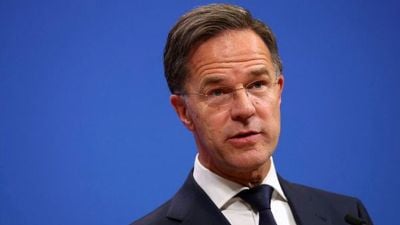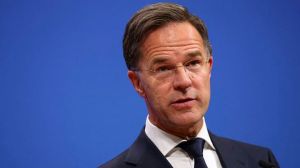‘Elections help resolve issues, Gujarat now needs a new govt’
Kanwar Pal Singh Gill thinks it’s time to book his flight out of Gandhinagar, to which he was sent by the Centre as Gujarat Chief Minis...

Kanwar Pal Singh Gill thinks it’s time to book his flight out of Gandhinagar, to which he was sent by the Centre as Gujarat Chief Minister Narendra Modi’s Security Advisor on May 2. It’s Gill’s view — as reported by The Indian Express on July 13 — that his assignment has now reached its last chapter, that the next big thing for Gujarat is Assembly elections. Gill spoke to Darshan Desai in Gandhinagar.
You recently said early Assembly polls would settle the situation in Gujarat. There was talk then that you made this statement at the behest of the central BJP leadership.
I made that statement on the basis of my experience of trouble-torn areas, not at anyone’s behest. I have personally seen elections resolve big issues. Elections were held in Assam in 1983 when the whole state was on strike. I recommended elections and the first day of polling in 63 constituencies was totally peaceful. As many as 11 Army brigades pulled out soon, leaving 35 companies of paramilitary forces behind. In any case, elections have been held under worse situations and have helped improve things.
In Gujarat, there is an atmosphere of distrust and suspicion. The government is in the dock, with severe attacks from the media, NGOs, Opposition parties and others. Every transfer, every event, virtually everything is regarded with suspicion. In such a situation, a new government can be a whiff of fresh air.
There are fresh findings in the Godhra train carnage investigation. The report of the Forensic Science Laboratory seems to have given the incident a whole new dimension.
There are several theories on Godhra, even as the investigation continues. The FSL report can’t be seen in isolation, for many questions emerge out of it. For instance, how did 60 litres of inflammable liquid get inside the train? Then, it’s also a fact that a very heavy attack was made on the train from outside. It is premature to jump to conclusions.
What was your impression about the Gujarat violence when you came? And what’s it now, two-and-a-half months later?
When I came here, I realised that the situation wasn’t as difficult to control as was made out to be. Today, I feel there should have been intensive intervention to prevent the incidents on February 28. The attention should then have been focussed completely on investigating the Godhra carnage. That didn’t happen in time, which is why all kinds of theories about Godhra are doing the rounds today.
Today, there are three theories on Godhra: that it was done by an outside agency; that it was carried out by local criminals; that the attack originated inside the train.
In this mess, the average Hindu feels the Muslims did it; the average Muslim feels some criminals did it to give them a bad name. All this could have been avoided had the Godhra investigation progressed immediately and swiftly.
There are still complaints about grossly inadequate compensation being given to riot victims.
The government follows certain rules and norms regarding compensation that were framed a long while ago, that are simply not commensurate with today’s cost of living. That’s why such complaints are heard each time a major tragedy occurs. There is an immediate need for a national policy on relief and rehabilitation, where those who are completely hand to mouth are fully compensated for the entire damage. Compensation should be paid according to a person’s earning capacity.
Do the guilty in major riots eventually get punished?
Unfortunately, very few have been punished in mass rioting cases in the last 40-50 years. Take the recent case of three people from the majority community who were involved in rioting, and were acquitted because witnesses from the other community turned hostile. How many people were punished in the 1984 anti-Sikh riots in Delhi? Again, basic changes are needed in post-crime investigations, and a national policy needs to be framed on treating terrorism and communalism on the same lines.
After two-and-a-half months in Gujarat, do you think that people in government had a hand in the communal violence?
I would say that certain individual police officers failed to come to grips with the situation. Political leadership has little role to play when a police officer on the spot does his job. After all, 10 to 12 major cases account for most of the killings. At some places, the police were simply not there; at some others, they were ineffective. We had the instance of rioting right in front of the Police Commissioner’s office. How do you explain that ?
So, was there a deliberate delay in transferring P C Pande, the former Ahmedabad Police Commissioner?
I cannot comment on what happened before I came. When I reached here, I was in favour of getting the work done by the same team of officials. Transfers were never my priority. But when the incidents continued a few days later, I thought there was a need for fresh faces. A change in the team clicked and things came under control.
It was amazing that a large number of Muslims and many others were killed in police firing. That should not happen, for the lathi should have been extensively and effectively used and firing should be resorted to sparingly.
What do you think about Gujarat, its people?
By and large, the people of Gujarat are peace-loving and simple. I thought that the Punjabis were simple, but I realise here that the Gujaratis are more simple. Less than 50,000 people were involved in the riots. Everywhere I went, people told me the crowds came from outside. They were not their neighbours.





- 01
- 02
- 03
- 04
- 05


























